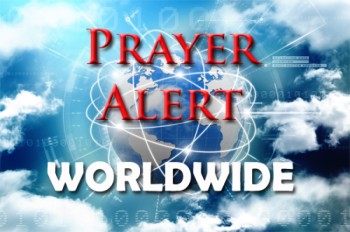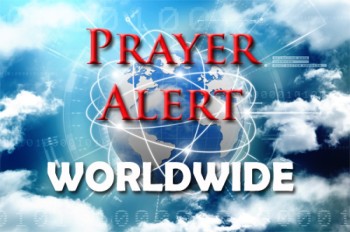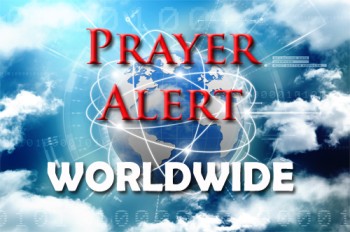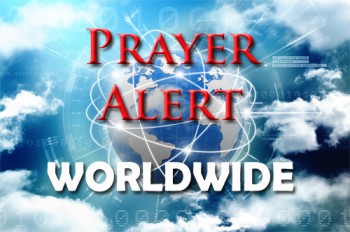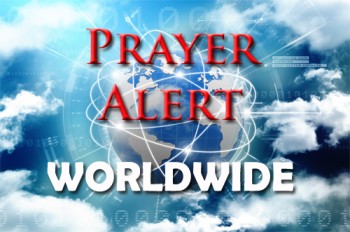Displaying items by tag: Africa
Niger: Migration
Niger is an important transit area from West and Central Africa, Libya, Algeria and Europe. All must face the desert before reaching their destination. Between January and May 2022, Algeria sent 14,196 migrants like Cécé, back to Niger. Cécé, a tiler from Guinea, has just returned from Algeria where he could never leave the dangerous construction site where he was sporadically underpaid. It was not worth staying, so he returned home to the same job he had left. A roundtrip tracing political geographies, imagined borders, expulsions, deportations, targeted removals and defeats. The feeling of shame for what has been invested in terms of time, money, energy, dreams and regret is mixed with the bitter relief of still being alive. These are times in which the seas, deserts and especially the use of borders are nothing but sophisticated systems of point elimination.
DRC: Conflict and Christians
On 25th January, Rwanda's military fired at a Congolese fighter jet that had violated their airspace for the third time recently. The DRC called the shooting ‘an act of war.’ This incident comes a week before Pope Francis is to make the first papal visit to Kinshasa since 1985. The Pope plans to shine a spotlight on the bloodshed of the conflict in eastern DRC, one of the world's most resource-rich yet conflict-ridden regions. On 15th January an improvised explosive device ripped through the congregation at a baptismal service conducted by a blind pastor. It severed limbs and killed at least 17 people. This attack in North Kivu province is just the latest terrorist outrage in the DRC by the Allied Democratic Forces, one of the most dangerous of dozens of armed groups in eastern DRC. As well as physical injuries, terrorist violence has left DRC Christians suffering serious emotional trauma.
100 hostages rescued from ADF
Recently, a joint military operation between Uganda and the Democratic Republic of Congo successfully rescued over one hundred civilians who were being held hostage by the Islamic extremist group Allied Democratic Forces (ADF). The military task force launched airstrikes on the ADF rebel camps for over two months before the rescue operation. One of the rescued women said, ‘The soldiers arrived when we were praying. They fired several bullets, which allowed us to flee to the middle of the bush.’ The ADF started as a force opposing the alleged mistreatment of Muslims by Uganda. It later expanded to the DRC, where it has grown and spread. It is the most violent of 120 armed groups in eastern DRC and has committed crimes against Congolese civilians, including many Christians.
DR Congo: UN denounces massacre
The UN’s peacekeeping mission in the Democratic Republic of the Congo has denounced the killings of fifty villagers by M23 in the conflict-wracked east, and called for an investigation to ‘bring justice’. The March 23 movement, or M23, is a Congolese Tutsi rebel group that was dormant for years. It took up arms again last November, seizing Bunagana town on Uganda’s border in June. ‘The UN said that the killings could constitute crimes under international humanitarian law, as well as violating the recent ceasefire. Denis Mukwege, a Congolese doctor who won the Nobel Peace Prize for helping rape victims in the strife-torn region, also expressed horror at reports of mass slaughter, missing people, and forced recruitment of children into conflict. Human Rights Watch said UN troops should be deployed to protect survivors. Pray that M23 is disarmed and withdraws from land it has seized as requested by the East African leaders. On 8 December the UN announced that 131 civilians had died in an attack by M23 in November. https://www.bbc.co.uk/news/world-africa-63899461
DRCongo: despair into joy
‘People were getting sick and dying a lot,’ says Sango. ‘One of my children died from diarrhoea. We could not afford medical care, we sold our mattresses, plates and clothes to pay for medicine and had nothing left to sell. ‘Our children were often ill and couldn’t go to school so we didn’t have time to farm and lost the respect of our community. Our despair turned to joy when Tearfund came and taught the importance of good toilets and washing our hands to prevent diseases, including diarrhoea. We built our first family toilet with a hand washing device. It has been three months since anyone has been ill! We have time and strength to farm and we can eat three meals a day, not just one. Our children are back at school, and after we have harvested our next crop we will buy some clothes.’
Uganda: Ebola quarantine extended
Uganda has recorded 141 infections since the outbreak of Ebola was declared on 20 September. President Museveni has extended by 21 days a quarantine placed on Mubende and Kassanda districts, at the epicentre of the outbreak. Movement in and out of central Uganda is restricted up to 17 December. The aim of this extension is to sustain the gains in control of Ebola which have been made, and to protect the rest of the country from continued exposure. Mr Museveni said, ‘It may be too early to celebrate any successes, but overall, I have been briefed that the picture is good.’ 55 people have died since the outbreak was declared. Although it is gradually being brought under control, he said the situation is ‘still fragile,’ adding that the country’s weak health system and circulation of misinformation about the disease were still a challenge.
Algeria: laws restrict mission work
Officials in Algeria are making it increasingly difficult for missionaries to evangelise or challenge Islam in any capacity. Algeria’s government-issued ordinances and restrictions on non-Muslim organisations attempting to attract Muslims to Christ are enforced with animosity, hefty fines, and the very real possibility of between three and five years in prison. Algeria’s population is 99% Sunni Muslim. The laws against blasphemy, proselytisation, and worship make ministry work extremely difficult and can come at a high price. They criminalise any individual offending the Prophet or belittling the precepts of Islam through writing, artwork, speaking, or other mediums. Laws regulating worship keep Christians confined to approved worship spaces made purposely in places difficult to attend regularly. Pray that church leaders will be strong and wise while enduring hardship, and for opportunities to distribute Bibles throughout the country, especially in the south.
South Africa: churches observe anti-Israel day
The Anglican Church of South Africa has passed anti-Israel resolutions, including the call on members to observe Nakba (Catastrophe) Day, which effectively means believing that Israel has no right to be a nation. Nakba, the name applied by Palestinians to Israel’s annual Independence Day, is normally marked by protests. The approval by Anglicans of such behaviour is a challenge to God’s promises, as they allow themselves to be used as a mouthpiece of the ‘father of lies’. It also goes against the grain of the growing movement of reconciliation between Jews and Arabs who follow Jesus (most Messianic congregations in Israel are mixed). The apartheid regime was defeated mostly thanks to South Africa’s leading Jews: now clerics are accusing Israel of the same type of discrimination. Meanwhile, English Anglicans recently held a service of repentance in Oxford Cathedral for historic anti-Semitism perpetrated by Christians.
Somalia: drought and deaths
11-year-old Dahir's brother died of hunger. His two sisters are fighting sickness and malnutrition caused by drought. Authorities want the international community to recognise the crisis as a famine. ‘I'm worried about my sisters. I wash them. I wash their faces’, says Dahir, glancing at six-year-old Mariam, coughing hoarsely and complaining of headache, and four-year-old Malyun, lethargic with sunken eyes. Measles and pneumonia are rampant, killing many younger children with immune systems weakened by malnutrition. At hospitals’ intensive care wards, doctors and nurses insert fluid drips into emaciated infants' arms and oxygen tubes into tiny nostrils. Children's limbs are dark and blistered as if severely burnt - a painful reaction to prolonged starvation. The hospital's head doctor said, ‘The world is paying attention to Somalia's drought now. We see visitors from international donors. But that doesn't mean we are getting enough support. I hope it will come soon. It is a desperate situation.’
Uganda: schools close due to Ebola
Uganda’s education minister has decided to shut all types of schools from 25 November after 23 Ebola cases were confirmed among pupils and eight children died. The virus circulating in Uganda is the Sudan strain of Ebola, for which there is no proven vaccine, unlike the more common Zaire strain which spread during recent outbreaks in neighbouring DR Congo. Ebola is spread through bodily fluids; common symptoms are fever, vomiting, bleeding and diarrhoea. Outbreaks are difficult to contain, especially in urban settings. Ebola generally kills about half the people it infects. The decision to close all schools came because densely packed classrooms were making students highly vulnerable to infection. On 5 November the three-week lockdown on Mubende and Kassanda districts, which are at the centre of the outbreak, was extended. The measures include dusk-to-dawn curfews, banning personal travel, and closing markets, bars and churches.
